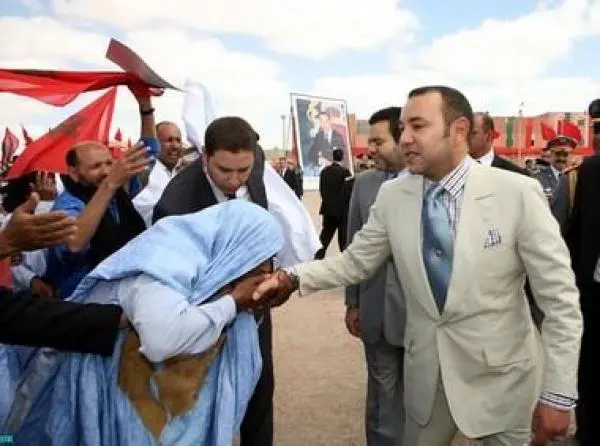Morocco, under the leadership of His Majesty King Mohammed VI, continues its diligent efforts to assert its legitimate rights over its southern regions through the autonomy plan under Moroccan sovereignty, relying on effective and proactive royal diplomacy.
Since ascending the throne of his esteemed ancestors, the kingdom has achieved significant successes. The recognition of Morocco’s sovereignty over its southern regions by major countries, such as the United States of America, is one manifestation of this royal diplomacy that elevates Morocco today to a key player with a significant voice on both the continental and international stages.
This is a diplomacy grounded in clarity, as it makes the Sahara issue “the lens through which Morocco views the world,” as His Majesty articulated in his speech on the 69th anniversary of the Revolution of the King and the People.
The growing international support for the Moroccan autonomy plan, considered the only and sole resolution to the regional dispute over Moroccan Sahara, is another embodiment of the dynamism and success of the royal approach.
This plan, which the successive United Nations Security Council resolutions have described as serious and credible since it was presented by Morocco in 2007, allows for substantial autonomy for the inhabitants of the southern regions while fully respecting national sovereignty. It currently enjoys the support of over 107 United Nations member states.
In this context, former Peruvian Foreign Minister Miguel Ángel Rodríguez Mackay emphasized that “Morocco has made the Sahara issue the central bet of its diplomacy, so that its step towards autonomy for the southern regions now echoes in the way it does.”
The legitimacy of the autonomy plan has been reaffirmed several times in Security Council resolutions. In this regard, Samuel Milner, a researcher at the George Mason University Center for Middle Eastern Law and International Law, a think tank based in Virginia, noted that the support expressed for the autonomy plan resulted “from diplomacy that recognizes the importance of strategic geopolitical alliances.”
This dynamism was further enhanced by the decision of about 30 Arab, African, American, and Asian countries to open diplomatic representations in the cities of Laayoune and Dakhla.
In addition to supporting Morocco’s territorial integrity, the opening of these representations acknowledges the level of development achieved by the southern regions, thanks to forward-looking policies that have enabled Moroccan Sahara to become a development hub for the vast Atlantic façade of Africa.
The American expert highlighted that this growing international support for the territorial integrity of Morocco reflects the strong foundations upon which the autonomy initiative is based and the effectiveness of Moroccan diplomacy led by His Majesty King Mohammed VI, showcasing the diplomatic breakthroughs achieved by the kingdom, particularly in Europe.
Samuel Milner recalled that 16 European Union countries expressed their support for the Moroccan autonomy plan, considering it a “significant repositioning” of European foreign policy. This dynamism, which reinforces the historical legitimacy of Morocco’s rights over its southern regions, reflects a growing awareness within the international community of the necessity to resolve the Sahara issue within the framework of the kingdom’s sovereignty.
For his part, the President of the Global Policy Institute, based in Washington, Paulo von Schirach, asserted that “the international community, for the most part, has come to realize that the resolution of the Sahara issue should be based on the autonomy plan.”
While Morocco continues to achieve political and diplomatic successes, the enemies of the kingdom’s territorial integrity are reaping setbacks. This is evidenced by the fact that over 84 percent of United Nations member states do not recognize the so-called republic.
Samuel Milner noted that “the strong international dynamic in favor of the autonomy plan and the proactive nature of Moroccan diplomacy deepen the isolation of the Polisario and its supporters,” at a time when separatist narratives are no longer finding receptive ears.
